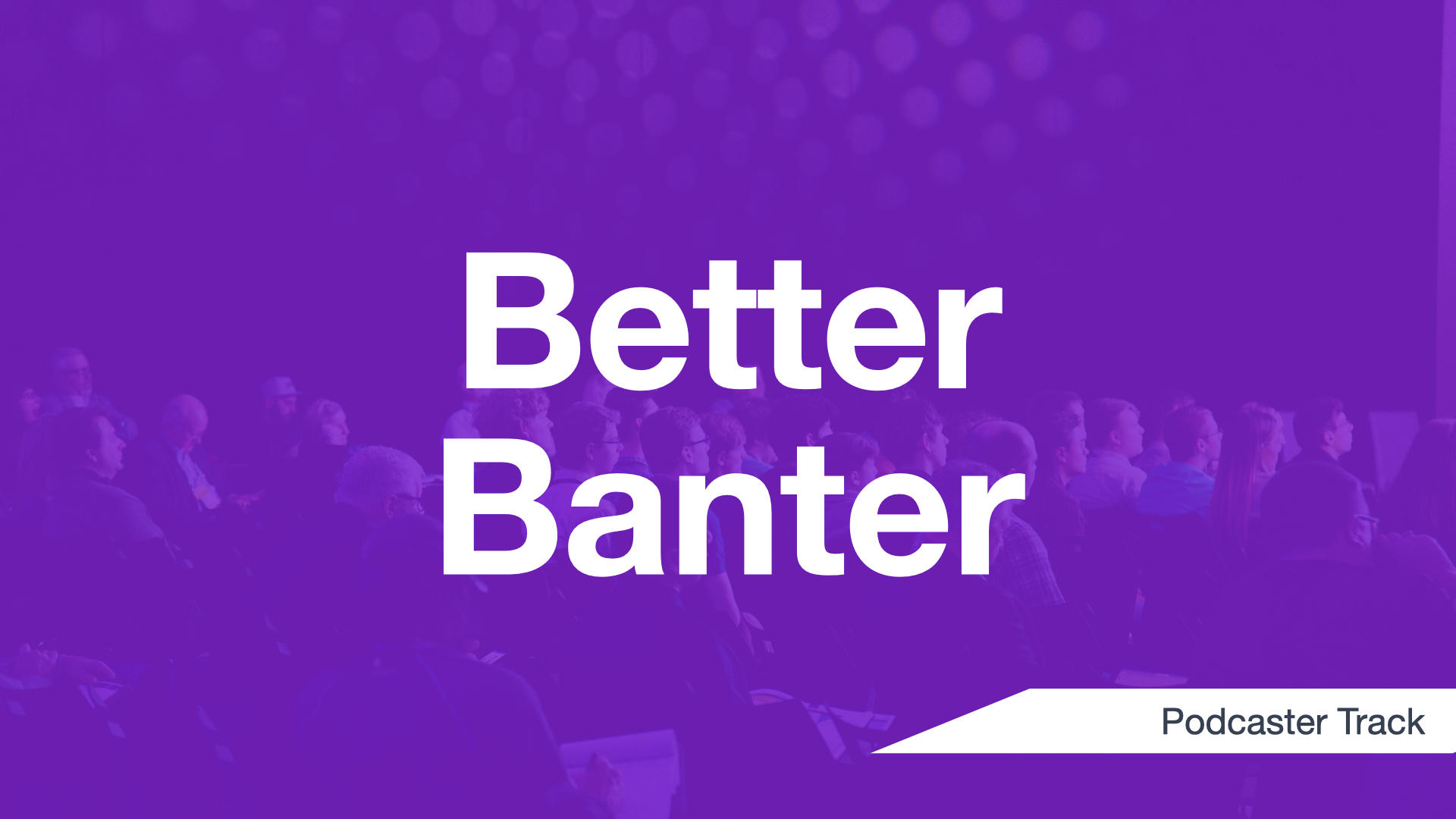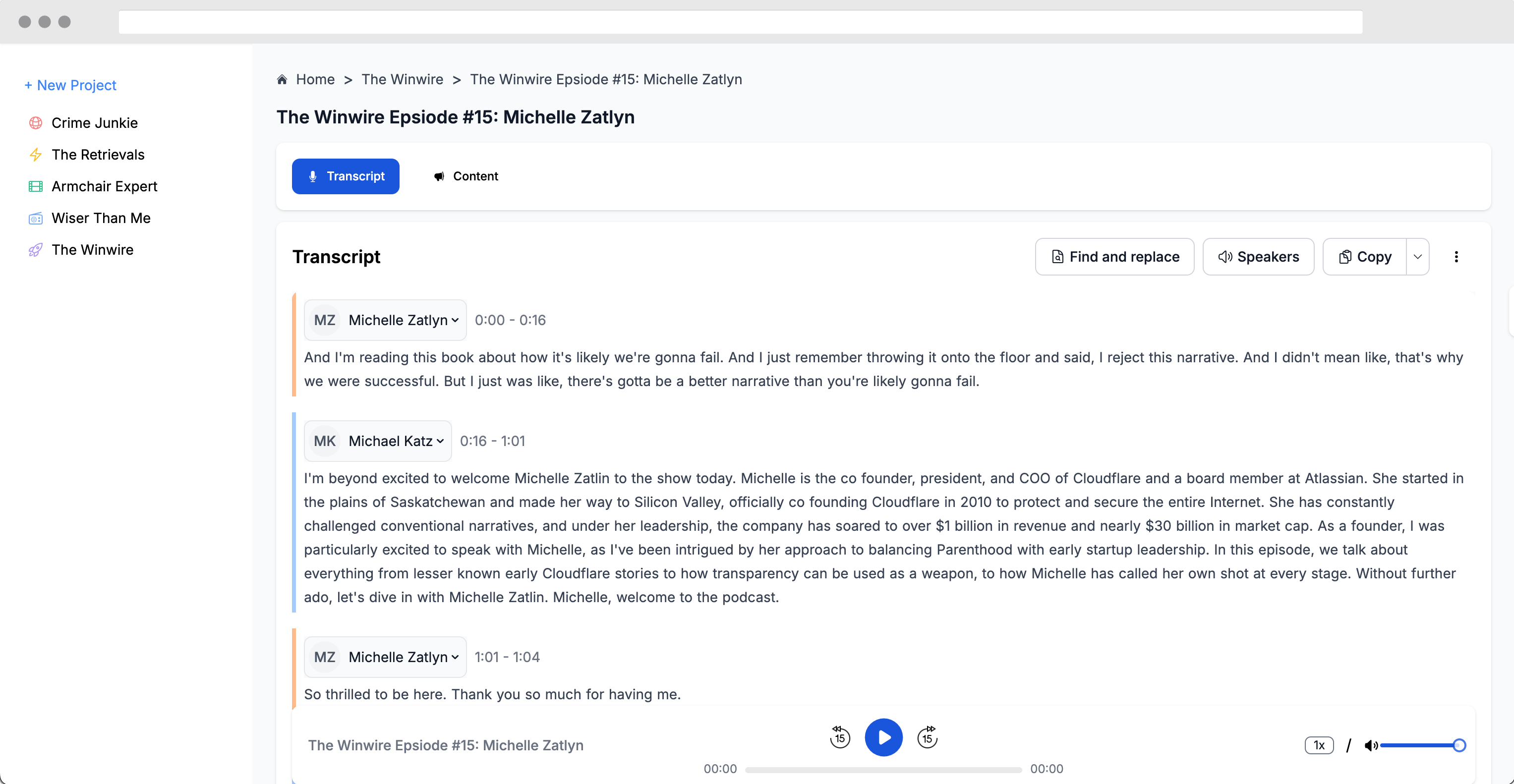Better Banter

Key Takeaways
Importance of Good Banter: Good banter between podcast hosts is crucial as it invites listeners into the conversation, making them feel involved rather than spoken at. It helps in creating a connection with the audience, making the content more engaging and relatable.
Balancing Banter and Content: Effective banter should not stray too far from the main topic. It should enhance the conversation without becoming a distraction. Knowing when to interrupt and when to let the conversation flow is key to maintaining this balance.
Personal Connection and Relatability: Sharing personal stories and experiences can make the podcast more relatable and engaging. This helps in building a relationship with the audience, encouraging them to return for more episodes.
Handling Heavy Topics: When dealing with serious or heavy topics, it's important to balance the conversation with lighter moments. This helps in maintaining the audience's interest and providing emotional relief.
Preparation and Boundaries: Setting boundaries and understanding each other's strengths and weaknesses as co-hosts can improve the quality of banter. Preparation, including scripting and understanding the flow of conversation, is essential for seamless interaction.
Overview
The panel, featuring Samantha McVey, Anney Reese, and Yves Jeffcoat, focused on the significance of banter in podcasting.
Samantha McVey, co-host of "Stuff Mom Never Told You," emphasized the importance of building a relationship with listeners through engaging and relatable conversations.
Anney Reese, host of "Saver," highlighted that good banter can make podcasts more enjoyable and relatable, even when discussing niche or heavy topics.
Yves Jeffcoat, co-host of "On Theme," discussed the balance between scripted content and natural banter, stressing the need for clarity and connection with the audience.
They collectively agreed that good banter involves knowing when to interject, understanding each other's strengths, and maintaining a natural flow to keep listeners engaged.
Core Concepts
The Role of Banter in Podcasting
Good banter is essential for creating an engaging and relatable podcast. It helps in building a connection with the audience and making the content more enjoyable.
Key Points:
Banter should be natural and flow smoothly between hosts.
It should invite listeners into the conversation, making them feel involved.
Good banter can make heavy or dry topics more engaging.
Examples:
Yves Jeffcoat emphasized that good banter makes the audience feel like they are part of the conversation, rather than being spoken at.
Anney Reese highlighted that good banter can attract more listeners by covering diverse experiences and perspectives.
Quotes:
Good banter is important because it starts to feel like the audience members can become involved in your conversation. - Yves Jeffcoat
If you have good banter between hosts, you have more opportunity to have those more interesting, enriching conversations. - Anney Reese
Balancing Banter and Content
Effective banter should enhance the conversation without becoming a distraction. It's important to maintain a balance between staying on topic and adding personal touches.
Key Points:
Banter should not stray too far from the main topic.
Knowing when to interrupt and when to let the conversation flow is crucial.
Over-editing can make the conversation sound unnatural.
Examples:
Yves Jeffcoat mentioned that being too off-topic for too long can be distracting, especially in a scripted podcast.
Anney Reese shared her experience of initially over-editing her podcast, which made the conversation sound unnatural.
Quotes:
Bad banter is being too off-topic for too long. - Yves Jeffcoat
Don't over-edit yourself. People speak. We don't speak perfectly. - Anney Reese
Personal Connection and Relatability
Sharing personal stories and experiences can make the podcast more relatable and engaging. This helps in building a relationship with the audience, encouraging them to return for more episodes.
Key Points:
Personal stories and experiences make the podcast more relatable.
Building a relationship with the audience is crucial for retaining listeners.
Banter can provide emotional relief during heavy or serious topics.
Examples:
Samantha McVey shared how talking about her dog during heavy topics provided emotional relief and made the conversation more relatable.
Anney Reese mentioned that sharing nerdy banter on her podcast resonated with listeners and made the content more engaging.
Quotes:
We had moments where we were like, let's talk about my dog. I love my dog a lot, and she's a jerk. - Samantha McVey
We found a really niche nerdy banter that somehow resonates with people. - Anney Reese
Conclusion
Good banter is essential for creating an engaging and relatable podcast. It helps in building a connection with the audience, making the content more enjoyable. Balancing banter with the main content is crucial to avoid distractions and maintain the flow of conversation. Sharing personal stories and experiences can make the podcast more relatable and help in building a relationship with the audience. Preparation and setting boundaries with co-hosts can improve the quality of banter and ensure a smooth interaction.
Food for Thought
How can you balance banter and content in your podcast to keep the audience engaged without straying too far from the main topic?
What personal stories or experiences can you share to make your podcast more relatable and build a stronger connection with your audience?
How can you set boundaries and prepare with your co-hosts to ensure a smooth and engaging conversation?
Reference Tools, Platforms, and Resources
Recording Tools: Tools like Audacity or GarageBand for recording and editing podcasts.
Scripting Tools: Google Docs or Microsoft Word for scripting and outlining episodes.
Interview Preparation: Research tools like Google Scholar or JSTOR for preparing interview questions and background information.
Podcast Hosting Platforms: Platforms like Libsyn, Podbean, or Anchor for hosting and distributing podcasts.





